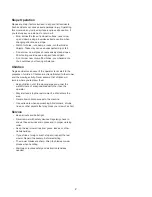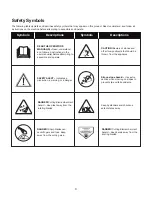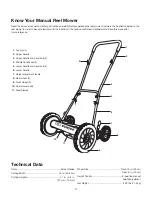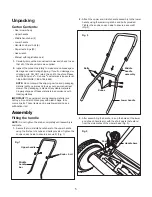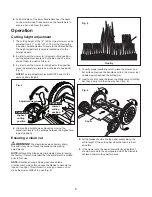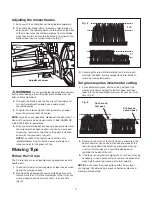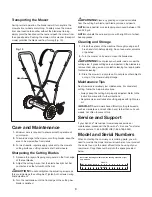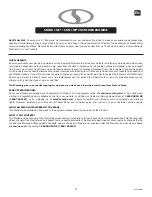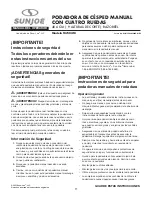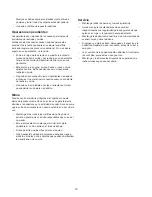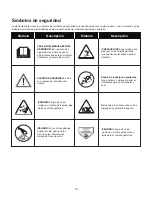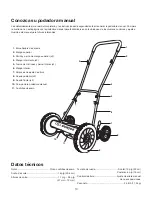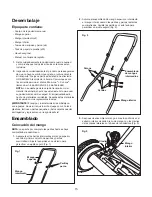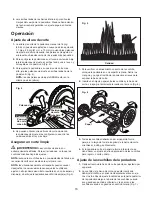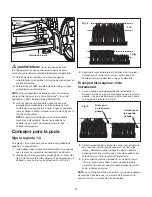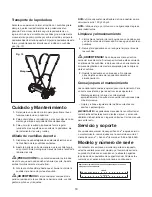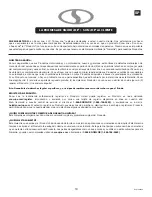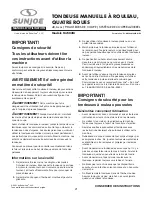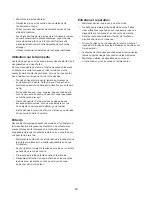
7
Adjusting the mower blades
1. Each end of the cutting bar can be adjusted separately.
2. The cutting bar blade, which is located under the reel, is
able to pivot. The two adjustment nuts located at the back
of the mower move the cutting bar away from the blades
when they are turned counterclockwise, and closer to the
blades when they are turned clockwise (Fig. 7).
m
WARNING!
Do not overtighten the adjustment screws
as this could damage the cutting bar. Both screws must be
tight on final adjustment.
3. To loosen the blades, use the hex wrench provided and
turn both adjustment screws by an equal amount
counterclockwise.
4. To tighten the blades, tighten both screws by an equal
amount by turning them clockwise.
NOTE: If you have any questions, please call the Snow Joe
®
+
Sun Joe
®
customer service department at 1-866-SNOWJOE
(1-866-766-9563) for assistance.
5. Once the mower blades have been properly adjusted and
their alignment has been verified, you can now proceed
to use your reel mower. Align the cutting path indication
arrow with the previously cut path.
NOTE: The width of the reel mower's actual cut is
indicated below. Do not use the mower's wheels as a
reference point for the grass cut line.
Mowing Tips
Follow the 1/3 rule
The 1/3 rule is key to an enjoyable mowing experience and a
healthy lawn.
1. You should mow your lawn regularly, at least once a week,
during the growing season.
2. Be guided by observing the lawn and taking care not to
remove more than 1/3 of the total height of the turf at any
mowing session and never more than 1 inch at a time
(Fig. 8).
3. Following this rule will stimulate the turf’s root growth,
maintain its health, and encourage its natural ability to
crowd out unwanted weeds.
Tall grass requires incremental cutting
1. For extremely tall grass, set the cutting height at the
mower's maximum setting for the first pass, and then
reset it to the desired height and mow a second or third
time (Fig. 9).
2. Removing too much of the turf’s height, especially in the
heat of summer, can cause root shock and weaken the
lawn; bringing down the height by successive mowing
over two or more days can avoid this damage and
maintain the health of the turf.
3. If the lawn is overgrown (to higher than 4 inches) it may be
necessary to use a brush cutter to remove the excess turf
mass before resuming mowing at normal heights.
NOTE: Do not cover the grass surface with a heavy layer
of clippings. Consider using a grass collection system and
starting a compost pile.
Fig. 7
Adjustment screw
1/3
1"
Fig. 8
Cut here on
first pass
Cut here on
second pass
Fig. 9


